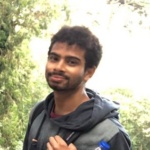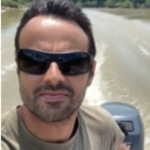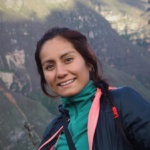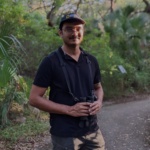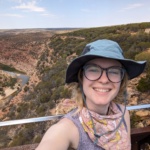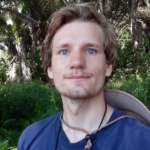2023-2024 Fellows
2023-2024 Fellows
Sikander Khare: My background is in physics and complex systems science, and my interests are in theoretical ecology. I am generally interested in using mathematical, computational, and statistical models to study community ecology, ecosystem ecology, spatial ecology, eco-evolutionary dynamics, and ecological forecasting. I am currently working on a project that examines biodiversity-productivity relationships in natural forests in the US. The project has two aims: (1) assessing the evidence for niche complementarity in explaining positive diversity-productivity relationships, (2) investigating how the productivity of individual trees is affected by the diversity of neighboring individuals. The project aims to connect theoretical ideas about and experimental evidence of biodiversity-productivity relationships to observational data from the US Forest Service’s Forest Inventory & Analysis (FIA) dataset, which contains over 100,000 plots from natural forests.
Sinomar Ferreira Da Fonseca: My research Interests include Biocultural Conservation; Protected Areas Management; Environmental Governance; Political Ecology; Indigenous Peoples Studies.
Sinomar Ferreira Da Fonseca Jr
Vanessa Luna-Celino: I am a Ph.D. candidate in Interdisciplinary Ecology. I have worked in ecological and environmental governance projects in the Andes Amazon region for the last ten years. Recently, I was a research assistant at the UF’s Governance of Infrastructure in the Amazon (GIA) project, where I helped promote social learning among partners on effective governance of big infrastructure projects in the Amazon. Currently, I am working on my doctoral research on community-based fire management in the Peruvian Andes.
Akshay Vinod Anand: My research centers around understanding intrinsic and extrinsic drivers that determine local movements of birds of the Western Ghats in India. I focus on how species’ traits and resource availability constrain elevational or local movements of birds in this biodiverse region of the old-world tropics. In the era of “big data”, it is important to leverage growing citizen science platforms to answer pertinent ecological questions. To this end, I am developing analytical approaches to quantify elevation migration of birds of the Western Ghats, using presence only eBird data, to test key hypotheses explaining this behavior. I also work at the intersection of landscape ecology and multi-trophic phenology. I am interested in understanding how phenological food resource availability affects seasonal bird community structure in a mixed-habitat mosaic landscape of the Western Ghats. I will be spending this spring out in the forests of the BRT Tiger Reserve, sampling bird, insect and vegetation phenology to understand the interaction between these three trophic groups. Beyond my research in avian ecology, I am also interested in community-led conservation strategies and bridging the gap between scientific knowledge and traditional ecological knowledge.
Akshay Vinod Anand
Ashley Hamersma: My research interests include the paleobotany of fruits & seeds, pedagogy using art to teach science, and the relationship of people and the (fossilized and extant) plants around them.
Christopher Nolte: My current research is examining why there are differences in conservation success between loggerhead and leatherback sea turtles in South Africa. This research will aim to use stable isotopes, satellite tracking, and genetic analysis to determine if these sea turtles can be classified as refugee species. I received my undergraduate and M.S. degrees from Nelson Mandela University. My master’s is focused on investigating habitat use of loggerheads using stable isotopes and epibionts and relating this to the turtle’s body condition.


